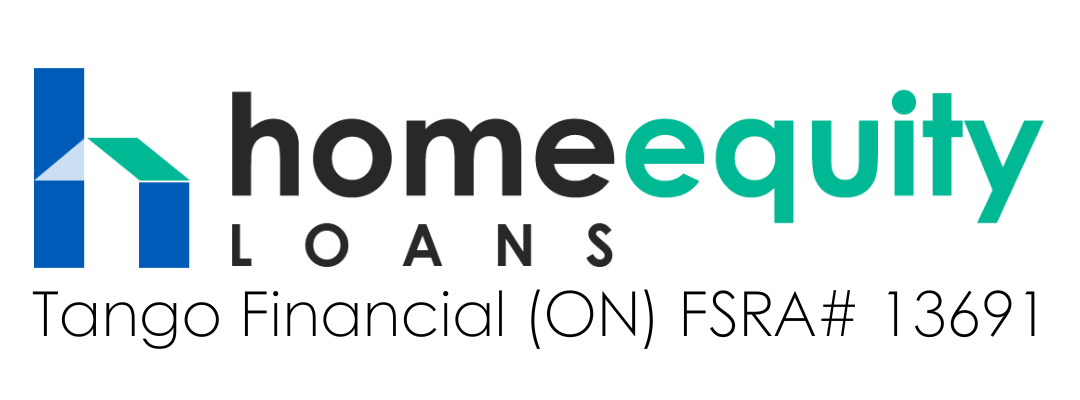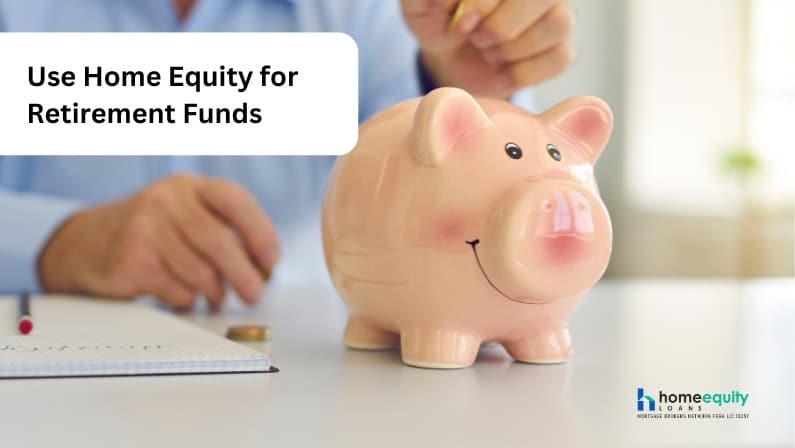As individuals approach retirement, many consider various financial strategies to ensure a comfortable and secure future. One often overlooked asset that can play a significant role in retirement planning is home equity. Your home is not just a place to live; it can also be a valuable source of funds. In this blog, we will explore four ways to use home equity in your retirement plan.
Home Equity Loans: Accessing Lump Sum Funds
Tap into your home equity through a home equity loan allows you to borrow a lump sum of money using your home as collateral. Home equity loans typically have fixed interest rates and set repayment periods, making them a predictable option for retirees who need a one-time cash infusion.
These loans can be used for various purposes, such as paying off existing debts, funding home renovations, or covering unexpected medical expenses. However, borrowers should be cautious and ensure they have a repayment plan in place to avoid jeopardizing their home ownership.
Home Equity Line of Credit (HELOC): A Flexible Credit Line
A Home Equity Line of Credit (HELOC) is a revolving line of credit that allows homeowners to borrow against their home equity as needed. Unlike a home equity loan, a HELOC provides flexibility, letting retirees access funds when required and only paying interest on the amount borrowed.
HELOCs can be an excellent option for managing irregular expenses, such as healthcare costs or unexpected home repairs. However, it’s crucial to use this financial tool responsibly and be mindful of the potential for rising interest rates.
Reverse Mortgages: Unlocking Home Equity Without Selling
A reverse mortgage is a financial tool that allows homeowners aged 62 and older to convert a portion of their home equity into cash without selling their property. In a reverse mortgage, the homeowner receives regular payments from the lender, either as a lump sum, fixed monthly payments, or a line of credit. This can be a useful option for retirees who want to supplement their income without taking on additional debt or selling their home.
It’s important to note that reverse mortgages come with their own set of terms and conditions, and homeowners should thoroughly understand the implications before opting for this strategy.
Downsizing: Trading Space for Financial Flexibility
For some retirees, downsizing to a smaller, more manageable home is a strategic move that can free up substantial home equity. Selling your current home and purchasing a less expensive property can provide a significant cash infusion for your retirement savings. Additionally, downsizing can result in lower maintenance costs, property taxes, and utility bills, contributing to a more financially sustainable retirement lifestyle.
Before making the decision to downsize, it’s essential to carefully consider factors such as location, amenities, and future needs to ensure the new home meets your long-term requirements.
Tapping into home equity for retirement funds can offer several benefits, providing financial flexibility and security for individuals as they enter their retirement years. Here are some key advantages:
Benefits of using Home Equity into Your Retirement Fund
-
Supplemental Income
Enhanced Cash Flow: Utilizing home equity, particularly through options like reverse mortgages or home equity loans, can provide a reliable source of supplemental income during retirement. This additional cash flow can be instrumental in covering daily expenses, healthcare costs, or even pursuing leisure activities.
-
Debt Consolidation
Paying Off High-Interest Debt: Accessing home equity can allow retirees to consolidate high-interest debt, such as credit cards or personal loans. By consolidating debts, individuals can potentially lower their overall interest payments and manage their finances more efficiently.
-
Healthcare Expenses
Covering Medical Costs: As healthcare expenses often increase with age, home equity can be a valuable resource for covering medical bills, long-term care insurance, or other health-related expenditures. This can contribute to a more secure and stress-free retirement.
-
Flexible Financial Solutions
Tailored Financial Strategies: Home equity options such as Home Equity Lines of Credit (HELOCs) provide flexible access to funds. This allows retirees to use the money when needed and only pay interest on the amount borrowed, offering a customizable financial solution that aligns with individual retirement needs.
-
Home Improvement and Aging in Place
Creating a Comfortable Living Environment: Home equity can be used for renovations or modifications to make a residence more age friendly. These improvements may include adding safety features, such as handrails or ramps, allowing retirees to age in place comfortably.
-
Peace of Mind
Financial Security and Peaceful Retirement: Using home equity for retirement funds can provide a sense of financial security, allowing retirees to enjoy their post-working years with peace of mind, knowing they have additional resources to support their lifestyle and unexpected expenses.
While tapping into home equity can offer numerous advantages, it’s crucial for individuals to carefully assess their financial situation, consider the associated risks, and seek professional advice to make informed decisions tailored to their unique retirement goals and circumstances.
Conclusion
Leveraging home equity in your retirement plan can open up a range of financial possibilities. Whether you opt for a reverse mortgage, home equity loan, downsizing, or a HELOC, it’s crucial to carefully assess your financial goals, risk tolerance, and lifestyle preferences. Consulting with a financial advisor can help you make informed decisions and create a retirement plan that maximizes the benefits of your home equity while ensuring long-term financial security.
Frequently Asked Questions
What is home equity, and how can it be used in retirement planning?
Home equity is the difference between the current market value of your home and the outstanding balance on your mortgage. In retirement planning, you can leverage home equity through various financial strategies to enhance your financial well-being.
What should retirees consider before using home equity in their retirement plan?
Retirees should carefully assess their financial goals, risk tolerance, and lifestyle preferences. Consideration should be given to factors such as potential interest rate changes, the impact on long-term financial security, and the specific terms and conditions associated with the chosen home equity strategy.
Can using home equity affect my eligibility for government benefits?
Depending on your location and the specific benefits, leveraging home equity may impact eligibility for certain government assistance programs. It’s advisable to consult with a financial advisor to understand the potential implications and ensure a well-informed decision.





